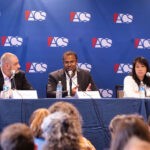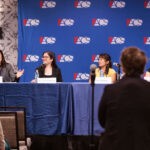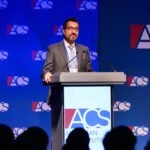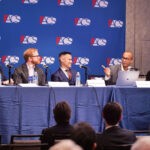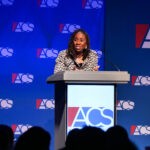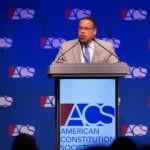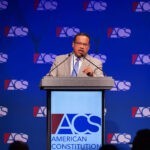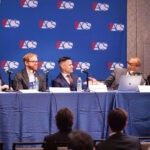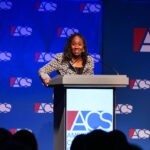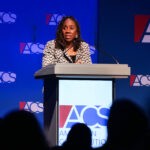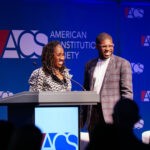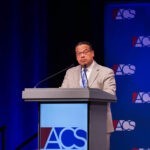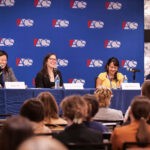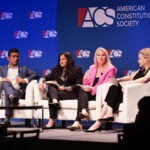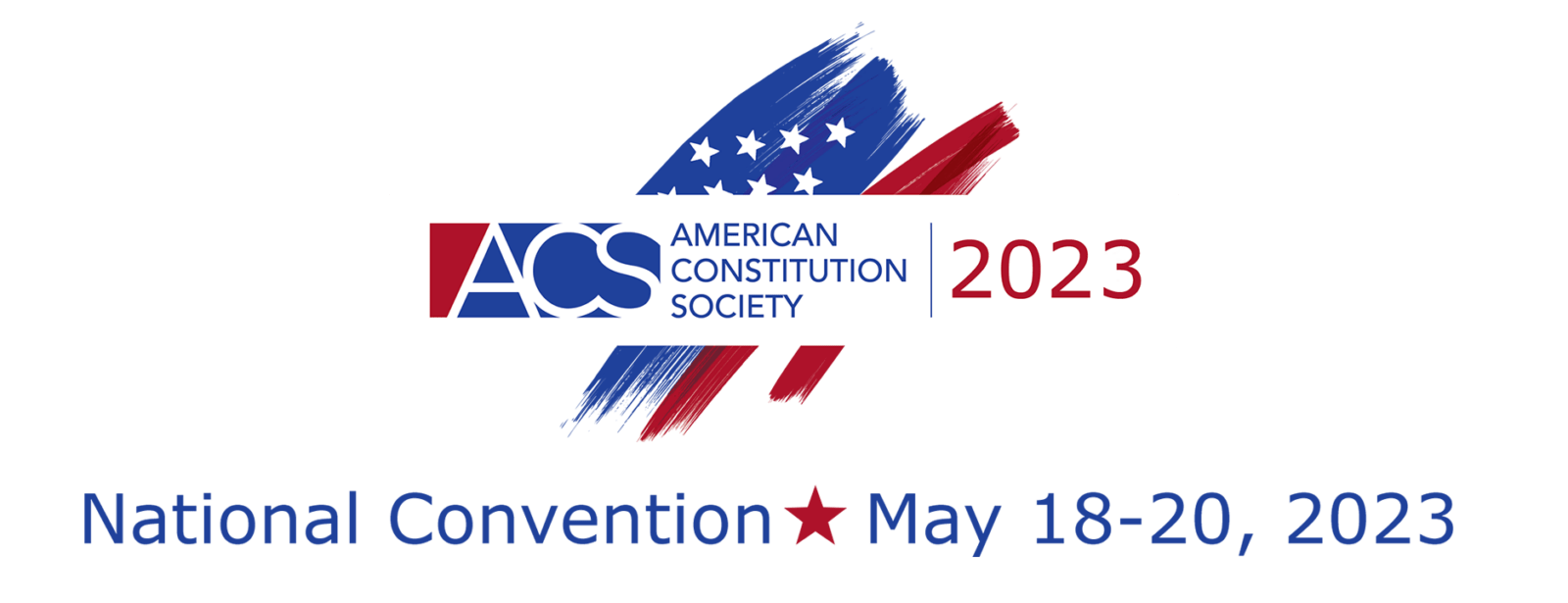
The ACS National Convention is the premier annual progressive legal gathering, bringing together lawyers, law students, scholars, judges, activists, and policymakers to examine some of the most urgent and challenging issues confronting our nation.
National Convention
Thursday, May 18-Saturday, May 20
Capital Hilton
1001 16th Street NW
Washington, DC 20036
Russ Feingold, ACS President
Ruth Bader Ginsburg Award: Leah Litman
David Carliner Public Interest Award: Oren Nimni
Zinelle October and Hon. Justin J. Pearson
Lifetime Achievement Award: Sherrilyn Ifill
We Are ACS
FEATURED SPEAKERS
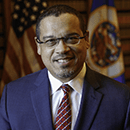 Keith Ellison Keith EllisonMinnesota Attorney General |
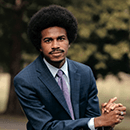 Justin J. Pearson Justin J. PearsonTennessee State Representative, 86th District |
Lifetime Achievement Award
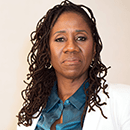 Sherrilyn Ifill Sherrilyn IfillSenior Fellow, Ford Foundation; President and Director-Counsel Emeritus, NAACP Legal Defense Fund |
Ruth Bader Ginsburg Scholar Award
 Leah Litman Leah LitmanProfessor of Law University of Michigan School of Law |
The David Carliner Public Interest Award
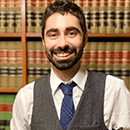 Oren Nimni Oren NimniLitigation Director Rights Behind Bars |
The Richard D. Cudahy Writing Competition on Regulatory and Administrative Law
Lawyer Category
 Daniel Deacon and Leah Litman Daniel Deacon and Leah LitmanUniversity of Michigan Law School |
Student Category
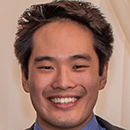 Shunhe Wang Shunhe WangYale Law School, Class of 2023 |
Constance Baker Motley National Student Writing Competition
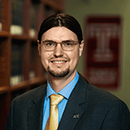 Arlo Blaisus Arlo BlaisusTemple University Beasley School of Law, Class of 2024 |
Thursday, May 18
3:30 p.m. – 5:00 p.m.: #MeToo Task Force Workshop
This interactive workshop will examine the legal profession five years after the #MeToo movement gained national attention. In small breakout groups, we will discuss what has changed, what has not, and where to go from here.

Elizabeth Binczik (Panelist/Facilitator) |
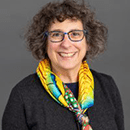
Heidi Li Feldman (Facilitator) |
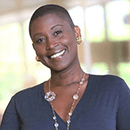
Michele Goodwin (Panelist/Facilitator) |
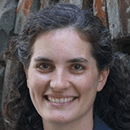
Mary Hanna-Weir (Facilitator) |
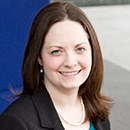 Rachel Kitze Collins (Facilitator) Rachel Kitze Collins (Facilitator)Partner Lockridge Grindal Nauen P.L.L.P. |
 Joshua Matz (Panelist) Joshua Matz (Panelist)Partner Kaplan Hecker & Fink LLP |
PANELS
Friday, May 19
9:15 – 10:45 a.m.: Plenary Session 1
Dismantling the Tools of Tyranny
In the past decade, the world’s largest democracies (including countries like the United States, Brazil, India, and the Philippines) have been increasingly threatened by authoritarians and proto-authoritarians who weaponize various institutions and social biases to achieve greater political, economic, and social control. Their strategies include marginalizing and demonizing ethnic, racial, and sexual minorities, coopting the judiciary, exploiting the criminal legal system (including the use of the death penalty), and curtailing bodily autonomy, most notably over reproductive choices. How are these strategies being employed in the U.S. and what warning should we take? What lessons can we learn about combatting these efforts to achieve inclusive democracies?

Russ Feingold (Moderator) |
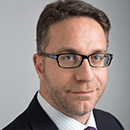
Jamil Dakwar |

Craig Jackson |
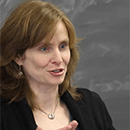
Kate Masur |
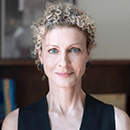 Alicia Ely Yamin Alicia Ely YaminLecturer on Law and Senior Fellow on Global Health and Rights, Petrie-Flom Center for Health Law Policy, Biotechnology and Bioethics, Harvard Law School; Adjunct Senior Lecturer on Health Policy and Management, Harvard TH Chan School of Public Health; Senior Advisor on Human Rights and Health Policy, Partners In Health |
11:00 a.m. – 12:00 p.m.: Breakout Session 1
Advancing a New Era of Antitrust
The nomination and confirmation of progressives to lead the Department of Justice Antitrust Division and the Federal Trade Commission have created the opportunity to revive the progressive tradition of trust busting. This opportunity arises within the context of renewed efforts now underway to resurrect the field of regulated industries, which decades of deregulation killed. How can progressive lawyers, law students, and law scholars take advantage of these opportunities to advance a new era of antitrust?
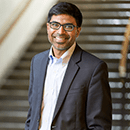
Ganesh Sitaraman (Moderator) |

Diana Moss |
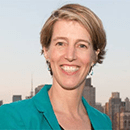
Zephyr Teachout |

Sandeep Vaheesan |
Beyond Color-Blindness: Confronting Legacies of Injustice
In recent years, revitalized movements for racial justice have spotlighted the continuing impact of genocide, slavery, segregation, and related systems of oppression in driving inequitable outcomes for people of color and called for affirmative measures to redress past harms. Meanwhile, through cases like Students for Fair Admissions, the Supreme Court’s conservative majority is advancing an ahistorical (and, when applied to sovereign Native tribes, inappropriate) “color-blind” reading of the Constitution, which threatens to derail these efforts. How can lawyers best support and contribute to movements to create a truly equitable society within this challenging legal landscape? How do we reckon with the law’s (past and continuing) role in perpetuating inequality? What should our legal frameworks around racial justice look like in the future?
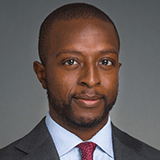 Taonga Leslie (Moderator) Taonga Leslie (Moderator)Director of Policy and Program for Racial Justice American Constitution Society |
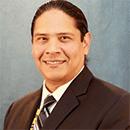
Jonodev Chaudhuri |
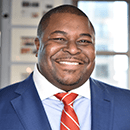
Damon Hewitt |

Lourdes Rosado |
Countering the Roberts Court’s Weaponizing of the First Amendment
The Supreme Court is poised to use the First Amendment to strike down laws aimed at addressing discrimination based on sexual orientation. The effect of this decision could ultimately extend to laws designed to protect against discrimination based on race, gender, and other protected classes. This and previous First Amendment cases raise questions about whose freedoms this Court is interested in protecting. Relying on dubious originalist notions about the Free Speech and Establishment Clauses, the Court is rewriting First Amendment Law. This is forcing progressives to decide whether to assert more religious freedom and freedom of speech claims given the Court’s leanings at the risk of allowing conservatives to further dictate the terms of the debate. What, then, are the long-term consequences of this movement?

Bradley Girard (Moderator) |
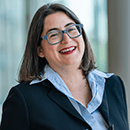
Tabatha Abu El-Haj |

Nora Benavidez |
1:00 – 2:15 p.m.: Broken Law Live Podcast Taping
ACS’s signature podcast, “Broken Law,” will host a live episode recording featuring Donald Sherman, Senior Vice President and Chief Counsel Citizens for Responsibility and Ethics in Washington (CREW), and Mark Joseph Stern, Senior Writer at Slate, and hosted by Jeanne Hruska, ACS’s Senior Advisor for Communications and Strategy to discuss the biggest legal news and developments thus far in 2023.

Jeanne Hruska (Host) |
 Donald Sherman Donald ShermanSenior Vice President and Chief Counsel Citizens for Responsibility and Ethics in Washington (CREW) |
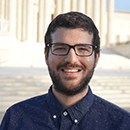
Mark Joseph Stern |
3:00 – 4:00 p.m.: Breakout Session 2
One Year Later: Advocating in the Aftermath of Dobbs
One year after the Court’s disastrous decision in Dobbs, patients, health care providers, and advocates are still sorting through the resulting fallout. State officials continue to pursue abortion bans and restrictions in some states while others work to expand access to their residents while also managing the flood of patients crossing borders seeking care. And prosecutors are left to decide how to best exercise their discretion in states and localities with abortion bans. How has the shift to the states played out on the ground? What can attorneys learn from the past year about the future of progressive movement lawyering when it comes to abortion rights?
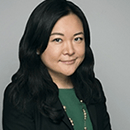
Jenny Ma (Moderator) |
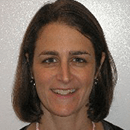 Carrie Flaxman Carrie FlaxmanSenior Director, Public Policy Litigation and Law Planned Parenthood Federation of America |

Maya Manian |

Melissa Torres-Montoya |
Entrenched: The Fight for Meaningful Representation in the Shadow of the Supreme Court
This term the Court heard two cases that will be highly consequential in the pursuit of a truly multiracial democracy – Allen v. Milligan, a case that could gut what remains of the Voting Rights Act of 1965 and severely hamper meaningful representation for marginalized communities, and Moore v. Harper, which has the potential to rewrite election law if the Court adopts the so-called “Independent State Legislature Theory.” In 2019, the Court already allowed states to gerrymander districts for partisan gain. If the Court rules against pro-voter plaintiffs this term, it will further open the floodgates for state legislators to pursue racially gerrymandered districts and entrench themselves beyond the reach of state courts or state constitutional protections. How can progressives fight this move toward extreme concentration of power in state legislatures? What redress will disenfranchised voters have to vindicate their rights if the Court adopts the ISLT? What reforms are needed and how can they be achieved?
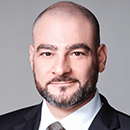
Justin Levitt (Moderator) |
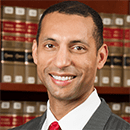
Spencer Overton |
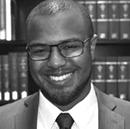
Deuel Ross |
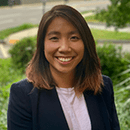
Poy Winichakul |
Danger & Opportunity: An Inflection Point for Labor
The conservative legal movement has spent decades trying to weaken unions and protections for workers, with Supreme Court decisions in Janus and Cedar Point being some of the most recent and high-profile victories for the anti-union movement. At the same time, state and local governments in many jurisdictions have been at the vanguard of passing and enforcing new laws to protect and support workers, and there’s been a surge of worker organizing after years of degraded working conditions. Now, as the Supreme Court considers a case this Term, Glacier Northwest, that could permit employers to use state tort law against employees for striking, the labor movement finds itself at the crossroads.
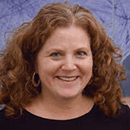
Terri Gerstein (Moderator) |
 Kate Andrias Kate AndriasPatricia D. and R. Paul Yetter Professor of Law Columbia Law School |
|
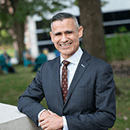
César F. Rosado Marzán |
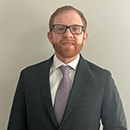 Robert Shore Robert ShoreAssociate General Counsel Service Employees International Union |
|

Dorian Warren |
||
4:30 – 6:00 p.m.: Plenary Session 2
We Are Not All Originalist
More than a decade after then-Supreme Court nominee Elena Kagan famously declared, “[W]e are all originalists,” a conservative super-majority, made up of at least three avowed originalists, has taken control of the Supreme Court. This Court has relied on claims of originalism to achieve the aims of the conservative legal movement—including undermining reproductive rights, gun violence prevention, and the separation of church and state. Some progressives argue that if properly applied, originalism will lead to rights-expanding, progressive decisions, while critics assert that originalism is largely results-oriented and frequently abandoned by conservative justices when it cannot lead to their desired result (including through the increasing use of the so-called Shadow Docket). Faced with a Court in the thrall of originalism, what are the best avenues for lawyers, judges, and scholars to articulate and achieve a progressive vision of the Constitution?
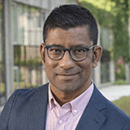
Aziz Huq (Moderator) |
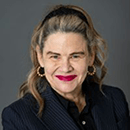
Victoria Nourse |
|
 Bijal Shah Bijal ShahAssociate Professor and Provost Faculty Fellow Boston College Law School |
 Elizabeth Wydra Elizabeth WydraPresident Constitutional Accountability Center |
SPONSORS Become a sponsor »
Underwriter
 |
 |
 |
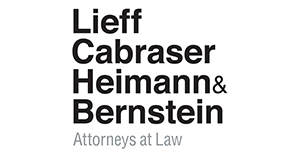 |
||
Benefactor
 |
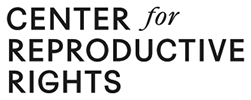 |
 |
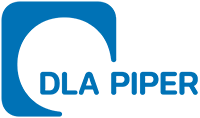 |
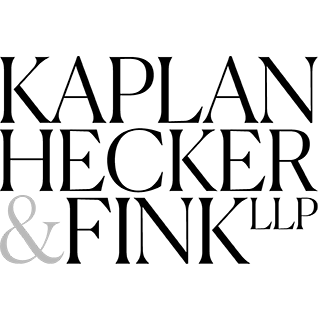 |
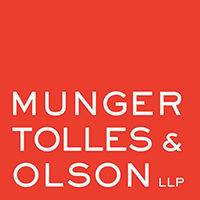 |
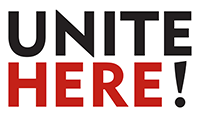 |
 |
 |
Patron
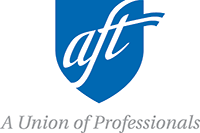 |
 |
 |
|
 |
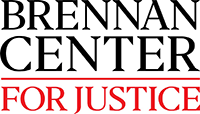 |
 |
|
 |
 |
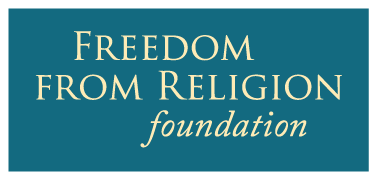 |
|
 |
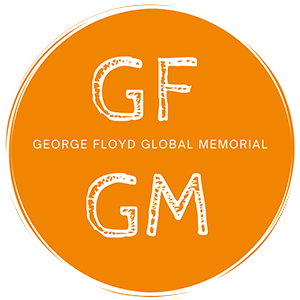 |
 |
|
 |
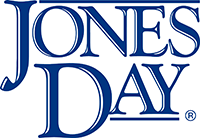 |
 |
|
 |
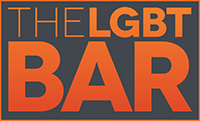 |
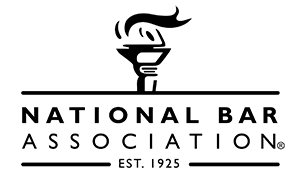 |
|
 |
 |
 |
|
 |
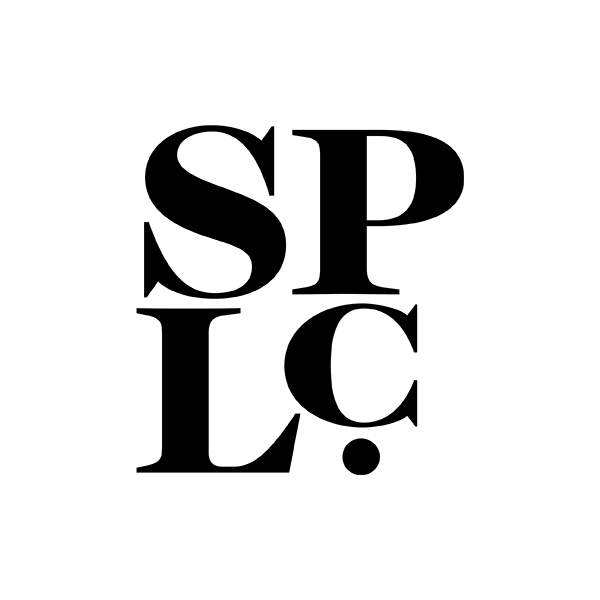 |
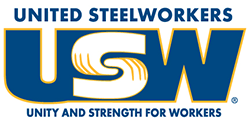 |
|
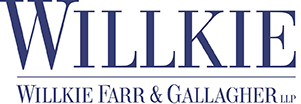 |
|||
If you have questions about sponsoring the 2023 ACS National Convention, please contact Zachary Holland, Assistant Director of Development, via email at: zholland@acslaw.org.
Scholarships
The student scholarship application is now open, and scholarships will be awarded on a rolling basis. Apply before February 15, 2023.
If you are a lawyer and have a hardship that makes the cost of attendance impossible, please contact us at LCEmails@acslaw.org.
Continuing Legal Education (CLE)
Click here to view this year’s CLE materials »
For those requesting CLE for virtual or in-person participation, you will be required to log codes announced during Convention sessions in order to verify participation and obtain credit using this form.
ACS is in the process of applying to states for CLE credit. The availability and amount of CLE credit may vary by state. So far, ACS has been approved for the following:
Approved: (In-Person Only, except California)
- California- 5 credits
- Delaware- 5 credits
- Florida- 6 credits
- Georgia- 5 credits
- Missouri- 6 credits
- New York (via reciprocity)- 5 credits
- Pennsylvania- 5 credits
Pending:
- Colorado
- North Carolina
- Texas
- Virginia
More states to come!
If you have further questions about CLE, please contact us at LCEmails@acslaw.org or FPensinger@acslaw.org.

